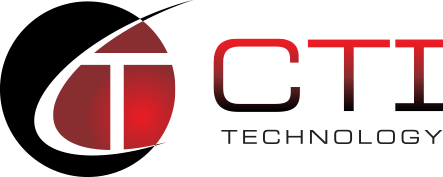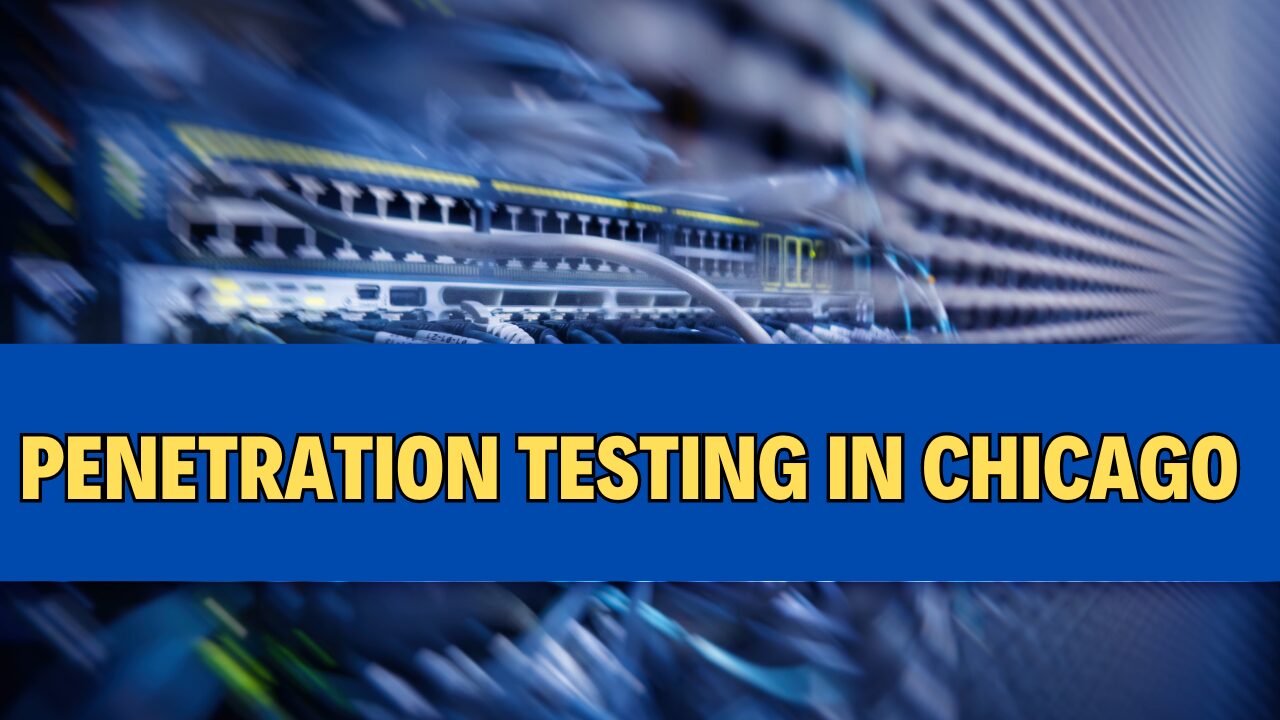Penetration Testing for Businesses in Chicago: Ensuring Cybersecurity in the Windy City
Penetration testing is an essential security measure that Chicago businesses should seriously consider as part of their cybersecurity strategy. By simulating cyberattacks, companies can identify vulnerabilities within their IT infrastructure before actual threats can exploit them. Chicago, known for its dynamic business environment, requires robust digital defense systems to protect against the increasing sophistication of cyber threats.
Data integrity and security are paramount for businesses operating in sectors such as healthcare, law, distribution, sales, and more. Implementing regular penetration testing can ensure that patient records, client information, and sensitive business data remain confidential and secure. With regulations such as HIPAA, businesses in Chicago must comply with stringent standards. This makes penetration testing a preventative measure and a necessity for compliance.
Key Takeaways
- Penetration testing identifies and helps mitigate potential security vulnerabilities.
- Regular security assessments are crucial for compliance with industry regulations.
- Proactive cybersecurity measures protect sensitive data and prevent breaches.
Understanding Penetration Testing
Penetration testing is a critical step in securing your business’s digital infrastructure. This section provides insight into its definition, types, and benefits.
Definition and Importance
Penetration testing, often referred to as a pen test, is a simulated cyber attack on your computer systems designed to evaluate the system’s security. The test is done to identify weaknesses (also referred to as vulnerabilities) in a system, network, or infrastructure that cybercriminals could potentially exploit. The importance of penetration testing stems from its ability to prevent unauthorized access and data breaches and maintain operational effectiveness against security threats.
Types of Penetration Tests
There are several types of penetration tests that your business can employ to ensure robust security:
- External Penetration Tests: Target external network systems and servers to see what an attacker can access and exploit from the outside.
- Internal Penetration Tests: Mimic an internal threat, revealing the potential damage from an insider attack or an external threat that has bypassed the perimeter defenses.
- Web Application Tests: Focus specifically on your web applications, checking for vulnerabilities in web apps themselves that could lead to unauthorized access or data exposure.
Each type targets different aspects of your business’s IT infrastructure and helps safeguard different facets of your digital environment.
Benefits for Businesses
Employing penetration testing offers numerous benefits:
- Identifies Vulnerabilities: Highlights security weaknesses before malicious attacks can exploit them.
- Maintains Compliance: Helps ensure that your business meets regulatory requirements concerning cybersecurity.
- Protects Reputation: By protecting customer data, you maintain trust and avoid the reputational damage associated with data breaches.
- Cost Savings: Proactive pen testing can save your business from the potentially exorbitant costs of a security breach.
Proactive and regular penetration testing is not just a preventative measure. It is an investment in the trust and longevity of your business in Chicago’s competitive market.
Planning Your Penetration Test
Before engaging in penetration testing, you must have a comprehensive plan. This will ensure that the test accurately reflects your business’s security posture.
Setting Objectives
The first step in planning your penetration test is to define what you want to achieve. Are you looking to uncover potential vulnerabilities within your IT systems? Or do you want to test the effectiveness of your existing security measures? Your objectives might include:
- Identifying risks associated with the business processes.
- Validating the effectiveness of defensive mechanisms.
- Checking for compliance with security policies.
Choosing a Penetration Testing Firm
When selecting a penetration testing firm in Chicago, confirm their expertise and experience. Look for firms with a proven track record and consider reviews or case studies. The firm you choose should offer:
- Certified professionals: Experts with certifications such as OSCP, CEH, or CISSP.
- Relevant experience: A portfolio with businesses similar to yours in size and industry.
Legal and Compliance Considerations
Before a penetration test, ensure all activities are legally sanctioned under a contractual agreement. This agreement will outline the scope of the test and protect both parties. You should:
- Obtain written permission from stakeholders and service providers.
- Consider the impact of testing on your compliance with regulations like GDPR or HIPAA.
- Ensure the testing firm follows Chicago’s local laws and federal regulations.
Executing Penetration Testing
When conducting penetration testing, the process involves meticulous planning, a structured approach to identifying vulnerabilities, and the use of specialized tools to simulate real-world attacks.
Scope and Preparation
Your penetration testing journey begins with defining the scope and objectives. This step is vital to ensuring the testing aligns with your business needs and compliance requirements. You’ll need to:
- Determine which systems and applications will be tested.
- Agree on the testing methods and the extent of the tests.
- Obtain necessary permissions and legal clearances to avoid legal repercussions.
- Set a timeline that minimizes impact on your operations.
Testing Process
Once the scope is established, the testing process commences. This phase can be broken down into:
- Information Gathering: Collect comprehensive data on the target environment.
- Threat Modeling: Identify potential threats and vulnerabilities.
- Vulnerability Detection: Use various techniques to detect weak points.
- Exploitation: Attempt to exploit vulnerabilities to gauge the impact.
- Post-Exploitation: Determine the data or systems that can be accessed.
- Analysis: Aggregate results and analyze the extent of the data breach.
Tools and Techniques
Your penetration testing will employ a suite of tools and techniques to uncover vulnerabilities, which may include:
- Automated Scanners: Tools like Nessus or OWASP ZAP for preliminary scanning.
- Manual Testing Techniques: Expert testers probing beyond the scope of automated tools.
- Social Engineering Tactics: Simulating phishing attacks to test employee awareness.
Each tool and tactic serves a purpose, from rapid vulnerability scanning to intricate breach simulation, ensuring a thorough examination of your security posture.
After The Penetration Test
Once your business has undergone a penetration test, a critical evaluation period begins. You’ll sieve through data to extract actionable insights, formalize findings in detailed reports, and outline necessary steps to enhance your security posture.
Analyzing Test Results
After the penetration test is complete, you need to thoroughly analyze the results to pinpoint vulnerabilities and the types of threats that could exploit them. Review each identified vulnerability for its potential impact on your network if leveraged by a malicious entity. This analysis should lead to a prioritized list of security weaknesses based on factors such as:
- Severity: The potential damage a vulnerability could cause.
- Exploitability: How easy it is for an attacker to use the vulnerability.
- Scope: The extent to which the system is vulnerable.
Reporting and Documentation
Proper reporting and documentation are imperative. You should expect a comprehensive document detailing:
- Executive Summary: A high-level overview accessible to stakeholders.
- Technical Report: Specifics on the discovered vulnerabilities, including:
-
- Location (e.g., IP address, URL)
- Description
- Proof of Concept
- Risk Assessment
- Recommended Fixes
Ensure this document is securely stored as it contains sensitive information about your system’s weaknesses.
Remediation Strategies
Developing remediation strategies is the next step to securing your system:
- Immediate Actions: Address critical vulnerabilities that can be quickly mitigated to reduce immediate risk.
- Long-Term Improvements: Plan for resource-intensive fixes that may require significant changes or investments.
- Validation: Retesting should be performed to ensure that the applied fixes effectively close the security gaps.
By prioritizing and methodically addressing the test findings, you enhance the security resilience of your business in Chicago against cyber threats.
Ongoing Security Practices
In safeguarding your Chicago-based business, it’s essential to integrate continuous security protocols into your operations. Here’s how you can maintain robust protection against cyber threats.
Regular Testing and Monitoring
Your cybersecurity stance requires constant vigilance. Implement routine penetration tests to identify and rectify vulnerabilities before they are exploited. Security monitoring should be a 24/7 effort, tracking for unusual network behavior and potential breaches.
- Penetration Testing: Conduct this quarterly or bi-annually, depending on your risk profile and industry regulations.
- Monitoring Tools: Utilize automated tools like SIEM (Security Information and Event Management) systems for ongoing surveillance.
Employee Training and Awareness
Your personnel are a critical line of defense. Regular training sessions are crucial to equip them with the knowledge to recognize and respond to cyber threats, such as phishing attempts and social engineering tactics.
- Training Programs: Implement these semi-annually to cover current threats and security best practices.
- Awareness Campaigns: Use emails, posters, and workshops to reinforce the importance of security in daily operations.
Continual Improvement
The landscape of cybersecurity is in constant flux, and so should your practices. Always seek to enhance your security posture with the latest technologies and methodologies.
- Technology Updates: Regularly update your IT infrastructure and cybersecurity tools.
- Feedback Loop: Incorporate findings from penetration tests and monitoring into your security strategy for ongoing refinement.
Why Work With CTI Technology For Your Penetration Testing Needs In Chicago
When prioritizing the security of your business in Chicago, partnering with CTI Technology for penetration testing can be a sound strategic move. This is especially true for crucial sectors such as healthcare, legal, distribution/sales, or if you’re a local small to medium-sized enterprise.
Experience and Expertise
CTI Technology has a well-established track record since 2004, offering a range of managed IT services tailored to businesses’ unique needs. Your penetration testing is handled by a well-versed team that safeguards sensitive data and ensures compliance with industry standards such as HIPAA.
Comprehensive Cybersecurity
Security is a cornerstone of CTI Technology’s offering. The firm provides a multi-layered defense strategy, from endpoint protection to intrusion detection, ensuring robust security for both office and remote environments. This holistic approach extends to penetration testing, where their methods identify and mitigate potential vulnerabilities.
Customized IT Strategy
Understanding that every business has different IT requirements, CTI offers fractional CIO/CTO services. This means they work with you to shape a technology strategy that aligns with your business goals—a strategy that includes thorough penetration testing to protect your digital assets effectively.
Flat-rate Pricing
With CTI Technology, anticipate predictable costs for your IT services. There are no hidden fees associated with their penetration testing, allowing you to manage your financial planning with greater certainty.
Sector-specific Insights
Whether securing patient records in healthcare or safeguarding client data in law practice, CTI Technology’s penetration testing is informed by specific industry needs and best practices, ensuring your critical data is protected against the latest cyber threats.
Why Is CTI Technology The Best Choice For IT Services In The Chicagoland Region?

























